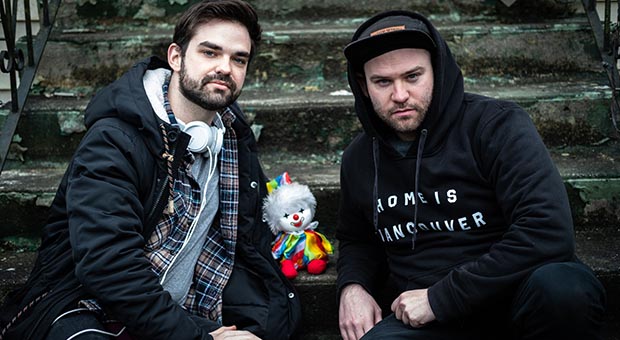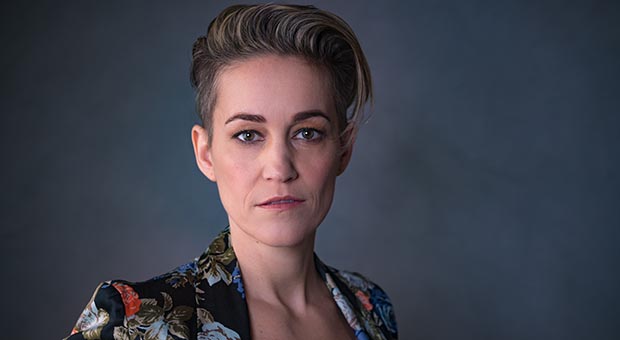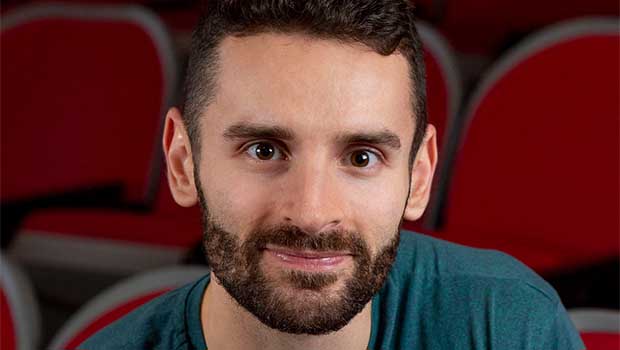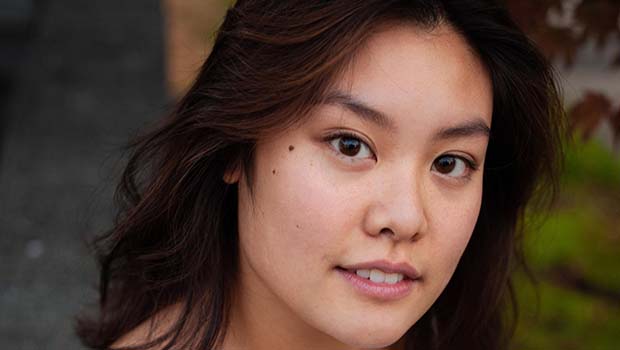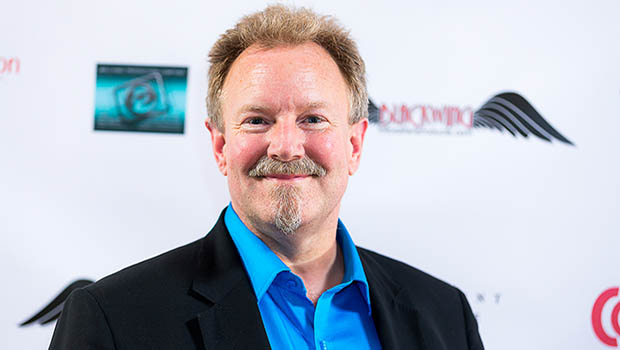
23 Mar The Biz Interview: Robert David Duncan
As an established director and actor, Robert David Duncan has seen it all on both sides of the camera. His newest acting project is A Legacy of Whining, in which he plays Dunc, an old high school friend to Ross Munro’s Mitch. As they reach a critical juncture in their lives, they share a memorable reunion in which their pasts, presents, and futures collide.
Just ahead of the film’s world premiere at the Vancity Theatre on April 5th, Robert David Duncan talked to us about how his time as an actor and director influenced his work on A Legacy of Whining.
________________________________
Can you start by telling us a little bit about you?
I have been dedicated to acting for 10 years now, having decided to pursue it seriously in mid-life after working as a consultant, college teacher, author and public speaker. At one point, I literally “gave up my day job” and took a leap into the Stella Adler Studio summer conservatory program in New York, which was a wonderful experience.
After lots of acting training here and in New York and some cool experiences in acting, I decided to try directing. Ross Munro was a big encourager of mine, telling me that I should give directing a try, and that it was fun. He was right! Several years ago I formed a production company, Fat Punk Productions, and we have developed a number of films, most recently a feature called It’s About Love that is in post-production. We have been fortunate to have had a lot of success getting our films into festivals around the world and winning several awards. I have also written books on acting and filmmaking and teach both subjects.
What can you share about your character in A Legacy of Whining?
Hilariously enough, Dunc is like my evil twin. He is everything that I am not. Aside from the obvious physical and name resemblance, he is Mister Hyde to my Doctor Jekyll, which makes him a delicious acting opportunity. In real life, I am an optimistic, encouraging person. I’ve been with my wife for 25 happy years, I don’t party or pop pills, and I’d much rather be home in my nest when the sun sets. Dunc on the other hand, well…
What kinds of things did you do to prepare for your role?
Ross Munro and I talked quite a bit about the characters, and the homage to old buddy movies of the ’70s. We very early on had a meeting of the minds, and didn’t have to explore the script to death, because the rhythm of the communication between the characters was just so natural. We slipped into each of our characters very readily and our rehearsals were really a lot of fun. My wife was also great at helping me with the lines, and she still knows a frightening number of them – we are always tossing around Mitch-isms and Dunc-isms. I also think everyone has had a friend like both of these two guys, the one who remembers everything about the old days, and the one who couldn’t care less, the undermining friend, the starry-eyed dreamer, and so on. By the time you get to middle-age, there’s a lot of experience to draw upon!
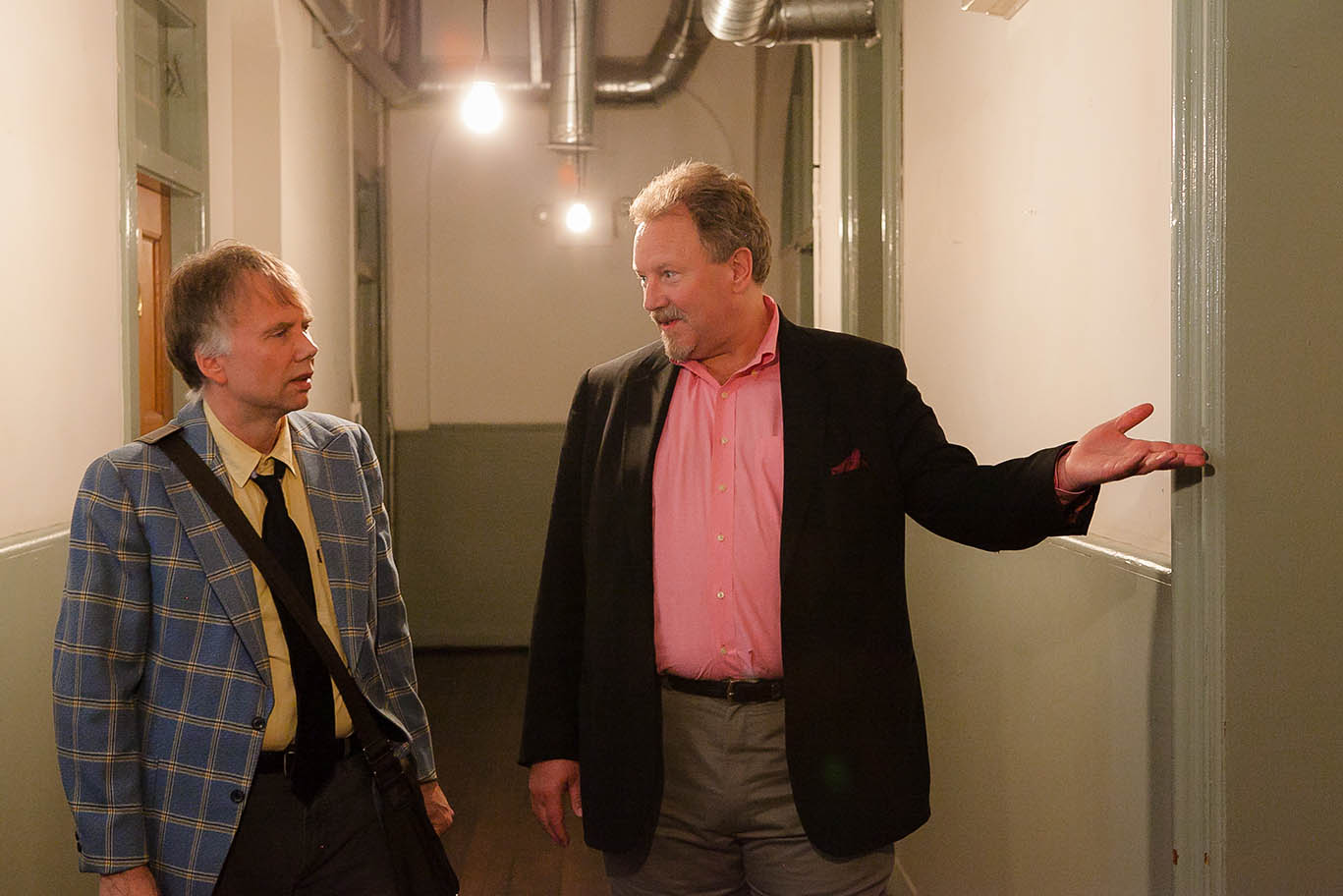
You have a wide mix of acting and directing credits. What do you enjoy about each of them?
Directing is a lot of fun and I find it sits comfortably on me as a vocation, probably due to my background in teaching, acting and management. Acting though, is the real drug, and is my first love. There are times during a performance when you can be so in flow that you zone out, and only come fully back into yourself when “cut” is called and you see that everyone is quite excited by the work. I’m sure every actor gets that experience at times, and it is really special.
How does your experience as an actor help you as a director and vice versa?
Because I was an actor first, I get where most actors are coming from, which helps me immensely as a director. I have studied most of the acting traditions, and can relate to an actor that is working either from their emotional experience, or from a more cerebral or imaginative place. This helps me communicate my vision as a director in terms that we both understand. I also know to go easy on the number of takes because I understand the risks of burning out the actors. I aim for 3 takes maximum. To get to that level of performance I try to do a lot of work with each actor before we shoot. As for being an actor who also directs, I think it helps me understand what the director likely needs, and so I can bring that to my performance – things like repeatability in coverage shots, awareness of continuity and the like. In both cases, my empathy is deepened because I understand the different jobs on set, and the importance of serving the story and ultimately the audience.
Many of your directing credits are short films. What would you say are the three most important ingredients that every short film needs to be successful?
A story, a message and a theme you care deeply about. To some extent those elements overlap, but they are the key ingredients. I wrote a book called “Micro Short Filmmaking: A guided learning journey” which guides aspiring filmmakers on how to make a simple one-minute film. If you can get a story that fits into a minute, that is driven from something you care about, and leaves a viewer affected, then you can make any length of film. The important thing is to start. If you have a smartphone or other simple camera, you can make a micro short film for no money and get it into festivals and perhaps even win an award. I run workshops on micro short filmmaking, and I am constantly blown away by the creativity of the people who take part. These are the filmmakers of the future.
Are there any books or authors that have been influential in your career so far?
The Art of Acting by Stella Adler, Being an Actor by Simon Callow and Acting in Film by Michael Caine. I read very widely on acting craft, but those are the 3 that I would grab in a fire!
What’s the most important lesson you’ve learned in your career?
Nothing comes easy, and everything takes more time and more work than you can imagine. It’s important to be working constantly on craft and generating your own work through writing and producing. Waiting to be chosen through the traditional audition process is a recipe for defeat and discouragement. You don’t need anyone’s permission to be working on your acting craft. Study, practice, write and shoot a simple film, surround yourself with others who are working hard, and be quietly grinding away all the time. Work more, talk less.
What’s your opinion on the current state of the Canadian film industry?
We are in the middle of a sea-change in terms of the democratization of content production. We are seeing feature films shot with iPhones. If you have a great story, you can find a way to make a film and get it out there into festivals and released online. It’s not a recipe for making lots of money, but there is a lot of talent here in Canada, and a lot of creative people. I think it’s a great time to be an independent film producer.
What other projects are you working on right now and where can we find out more about you?
I am in post-production on a feature film called “It’s About Love” and I am really happy with how it is coming together thanks to an awesome cast and crew. I am also filming a second feature which is an experimental iPhone film, and I have other projects in development. People can come visit us at FatPunkProductions.com, and can check me out on IMDB. Information on my current workshops and training is here. I am @duncanrob on Twitter, and am also on LinkedIn.
________________________________
Thanks to Robert David Duncan for speaking with us!
You can check out A Legacy of Whining at the Vancity Theatre on April 5th at 6:30PM.
Tickets available through VIFF.org.


